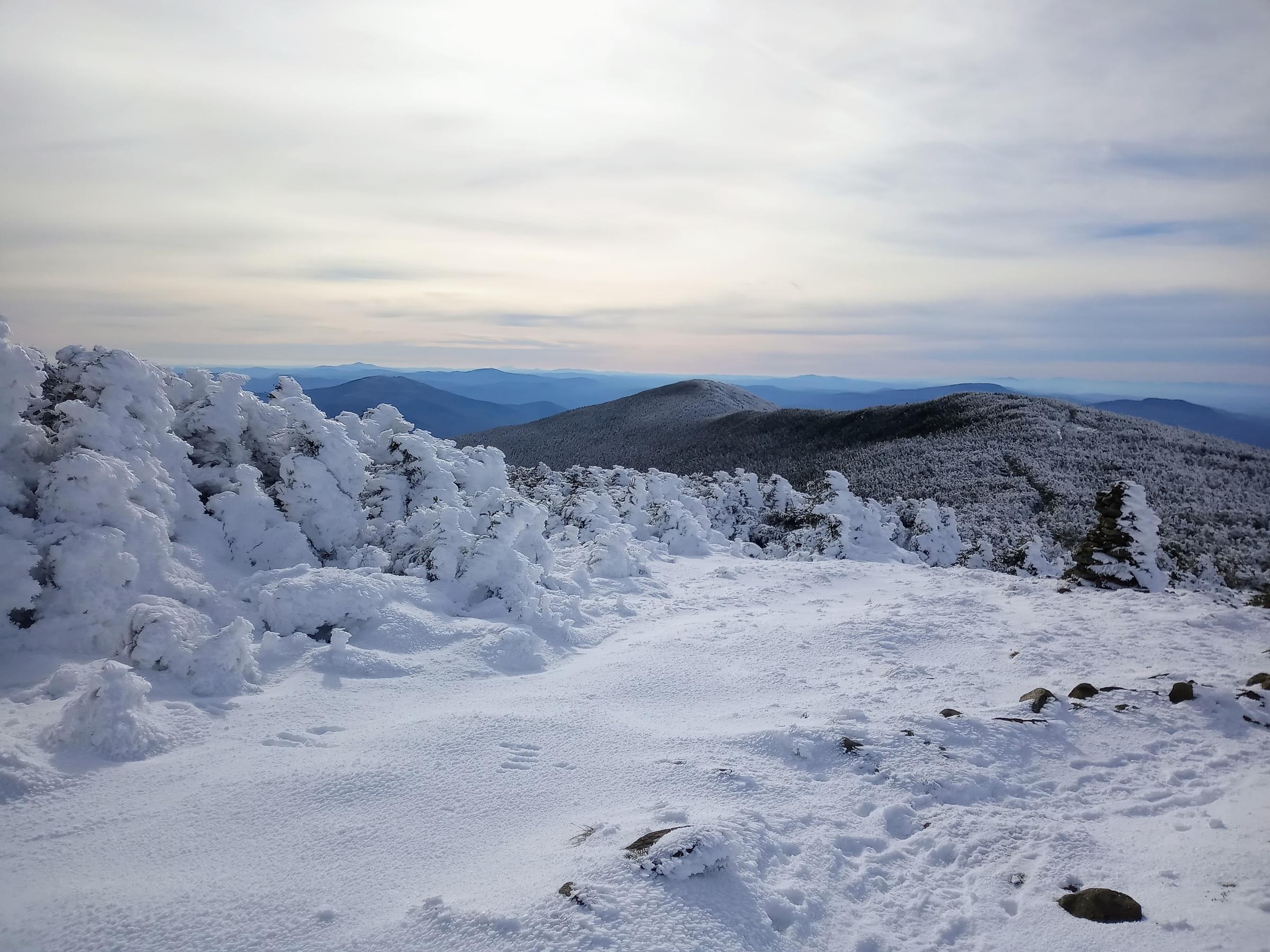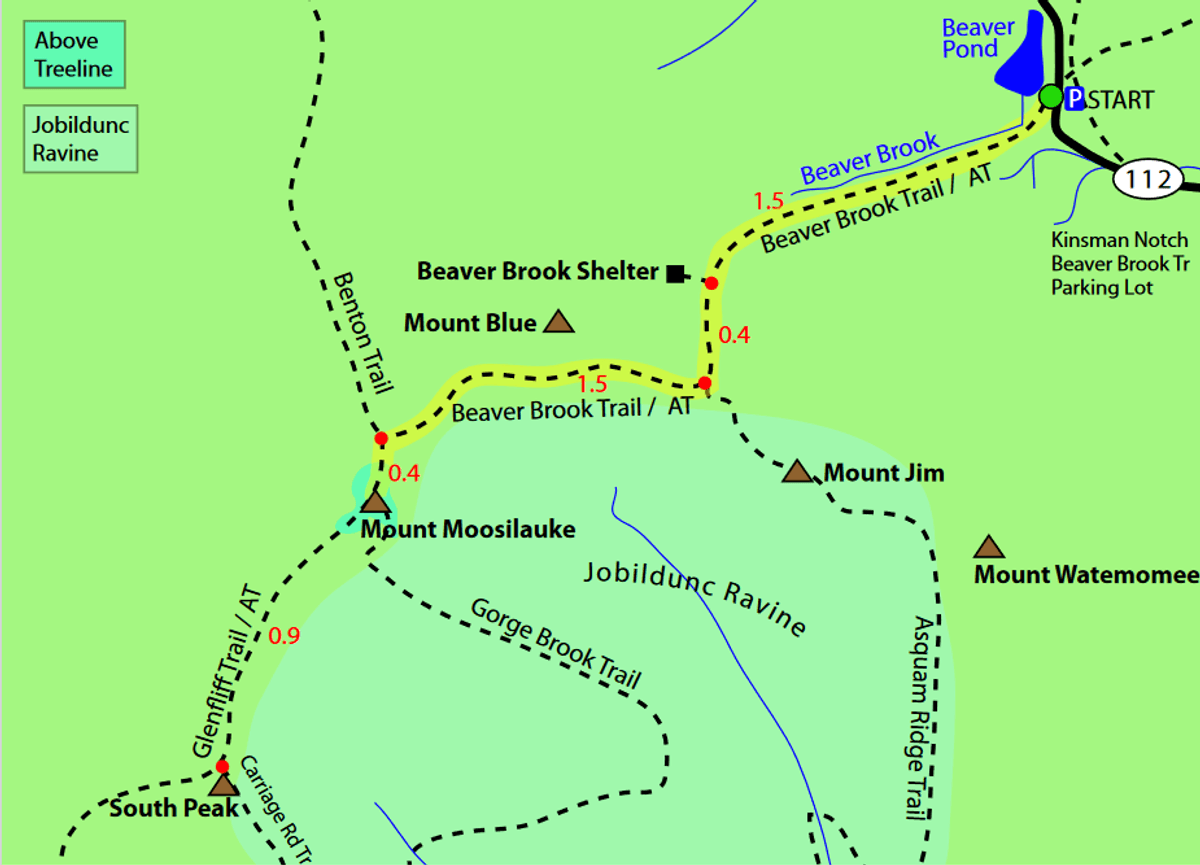Mt. Moosilauke, Benton

Mt. Moosilauke, Benton
Benton, New Hampshire 03785
Mount Moosilauke (4000Footers) webpageMount Moosilauke map
White Mountain National Forest Official Website
About this Location
Mount Moosilauke is a 4,802-foot mountain located along the Kinsman Range. It is the Western-most 4,000-footer mountain in the White Mountains. The Appalachian Trail passes over the mountain. The summit is above the tree line and offers magnificent 360-degree views of the Franconia Ridge and the Kinsmans to the North, Jobildunc Ravine to the Southeast, and the Green Mountains of Vermont to the West. The name Moosilauke means, literally, bald place from the Native American words moosi + auke.
About White Mountain National Forest
See all hotspots at White Mountain National Forest
In the decades prior to 1911, the unregulated logging practices of private timber companies in the White Mountains had resulted in a damaged landscape susceptible to both fire and flood. Fires had burned thousands of acres, and flash floods affected the water power necessary to the mills of major industrial centers downstream, such as Manchester, New Hampshire, and Lowell, Massachusetts. Concerns over losses to industry, business, and tourism, and the growing conservation movement led to citizen action. The Appalachian Mountain Club (AMC) and Society for Protection of New Hampshire Forests (SPNHF) spearheaded an effort to ensure the permanent protection of the White Mountains from further depredation. After years of lobbying and intense public pressure, Senator John Weeks of Massachusetts, a native of Lancaster, New Hampshire, introduced legislation that became known as the Weeks Act. The Weeks Act was passed by Congress in 1911, appropriating 9 million dollars to purchase 6 million acres of land in the Eastern U.S. In turn, this led to the creation of the White Mountain National Forest (WMNF) in 1918, and twenty-one other national forests throughout the north and southeast. Many of the groups who were instrumental in the passage of the Weeks Act, including the SPNHF and the AMC, are still active today, and the WMNF has grown from 7,000 acres to almost 800,000. Today, the reforested mountains and hillsides supply forest products and provide magnificent recreational opportunities while maintaining healthy watersheds and ecosystems.
Features
Restrooms on site
Wheelchair accessible trail
Entrance fee
Content from Mount Moosilauke (4000Footers) webpage and White Mountain National Forest Official Website
Last updated November 16, 2023
